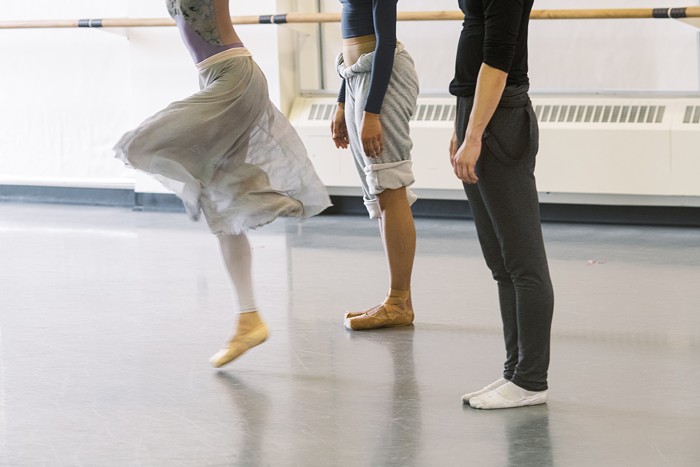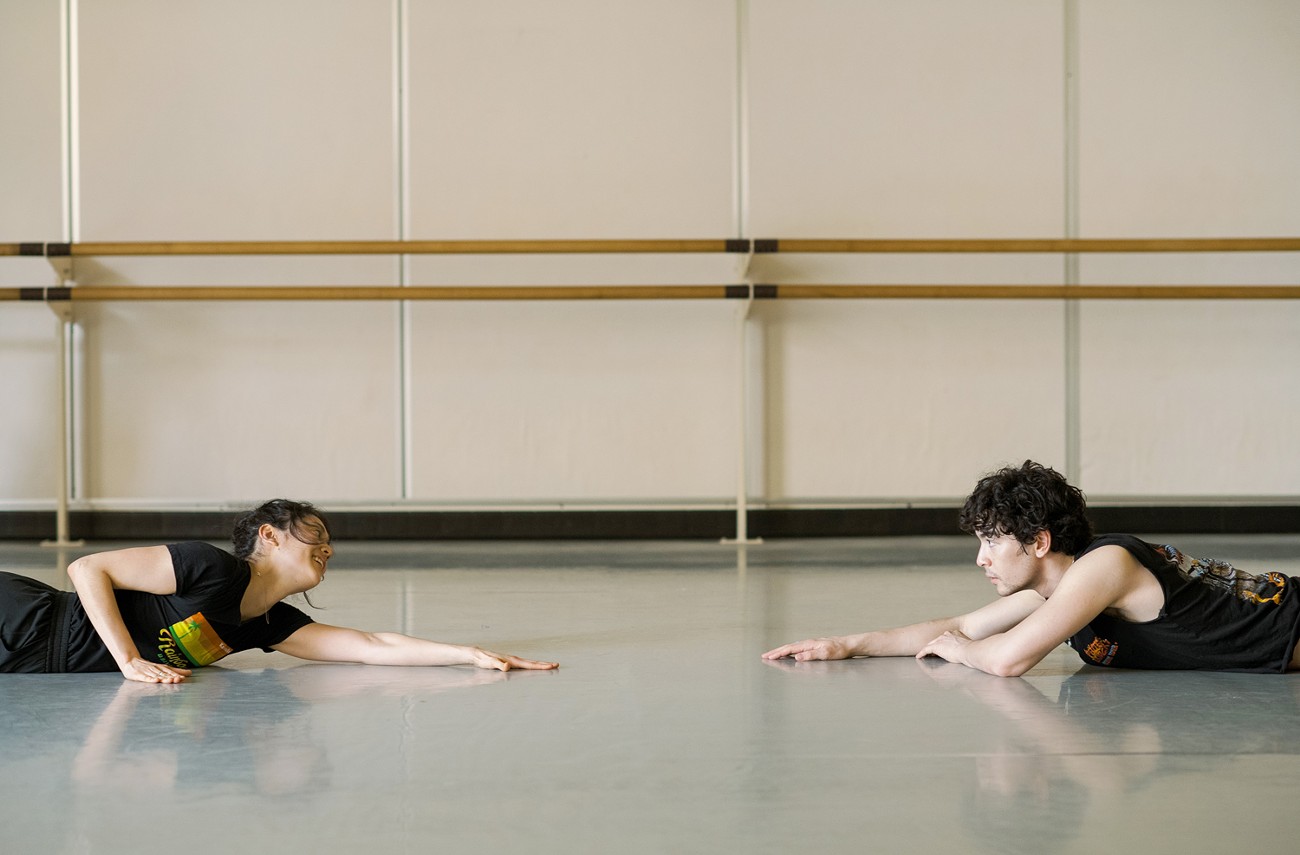EverOut's Top Picks for Spring 2023 Arts Events in Seattle
Our Top Performance, Visual Art, Literary, Film, and Music Picks for the Season
Ballet Unbound
Pacific Northwest Ballet Pushes Itself to the Limits with Boundless
Person of Interest: Rohini Jayanthi
Laughing Through Life’s Hardships
Obsessed by Northwest
Why David Schmader Watched Every Single Movie Ever Filmed in Washington and Oregon
The Flood Is Coming
Jónsi’s Multisensory Exhibition Will Hit You Like a Wave
Art & Performance: Spring 2023 Pickup Locations
We’re Back in Print! Looking for a Copy of Our Latest Art & Performance Issue? You Can Find One at the Following Locations.
The Stranger's A+P Is Back
The Most Comprehensive Guide to the Spring Arts Season Returns Online and in Print
Solaris Is About a Black Woman
Will Book-It Repertory Theatre’s Adaptation Catch What Others Have Missed?
Person of Interest: Kevin Sur
Heading into the Wild
Floating on a Sea of Vapors
Emily Counts’s Surreal Sculptures Capture Women’s Magical Powers
Person of Interest: Josh Okrent & CM Ruiz
Bringing Life to Seattle’s Vacant Spaces
Good as Hell
Legendary Drone Band Earth Finally Receives Their Hero’s Welcome
Bananas Are Creepy Yellow Fingers Full of Blood
A New Poetry Collection Tells the Whole Story
Pacific Northwest Ballet resident choreographer Alejandro Cerrudo walked into the dance studio with a Spotify playlist, some loose ideas, and not much else.
A little more than two weeks before its world premiere, his contribution to Boundless, a program of boundary-pushing ballets that will run at McCaw Hall from March 17–26, didn’t have a title, a firm setlist, or, for that matter, a set. “I could tell you what I have in mind for stage production, but it would be a lie,” he said in an interview shortly before the rehearsal. As for the steps to the dance? “Eh, I like the dancers to dance through sensations rather than steps,” he said.
He had developed a few sequences, sure. And he had a rough idea of what he wanted to see—his hallmarks in works such as One Thousand Pieces and Silent Ghost include gyroscopic tumbling, surprising spectacles, and lots of soft intimacies all arranged to music you’d actually listen to. But his plan was not to have a plan. He wanted to “keep it open.”
As the company’s first resident choreographer, Cerrudo’s developed a trusting relationship between himself and the dancers that affords him the space he needs to play. “It allows us to work more freely and prevents us from falling into what we already know,” he said.
PNB’s dancers seemed to embrace that approach.
When he strolled into the unseasonably sunny studio in late February, soloists Leah Terada and Christopher D’Ariano had something they wanted to show him. They’d spent a good part of the morning working out ways to basically stand up in a very cool way.
Panting and sweating, they ran through a complex routine. Cerrudo appeared to like the moves, but he directed them to try a few simpler variations before tabling it and moving on to the next sequence, which featured D’Ariano lying on his back and pushing up Terada by her hips as she held a midair plank at an angle, as if she were diving into him headfirst.
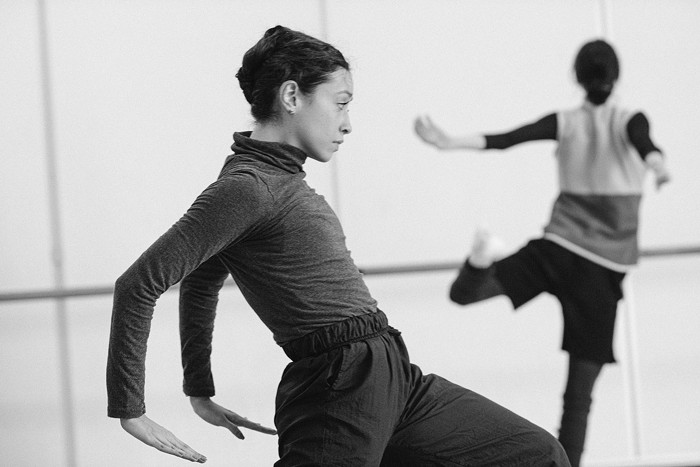
Soloist Sarah-Gabrielle Ryan gets low while corps de ballet dancer Lily Wills flips out in the background in rehearsals for Penny Saunders’s Wonderland. Kristen Marie Parker
As she held that position, Cerrudo asked Terada if she could “worm”—that is, undulate her body like a worm, but with no resistance. After a few attempts, she could do it smoothly. The adjustment turned a straight line into a ripple, amping up the scene’s sensuality and sense of fluidity. He asked her to execute the tough move three times, and she obliged with a knowing smile.
Cerrudo’s seat-of-the-pants staging style isn’t uncommon in the world of contemporary ballet. Lots of choreographers use improv and adjust their steps based on the kinds of dancers working at a given company. But his strategy of pulling the dance from the dancers themselves pushes them to their physical and creative limits, and, in turn, pushes the art form forward.

Celebrated New York-based choreographer Jessica Lang runs a much tighter ship, but the work she’s creating in Let Me Mingle Tears with Thee tests the limits of ballet in its own way, and the results look no less promising.
The dance emerges from Giovanni Battista Pergolesi’s composition of a 13th-century Latin hymn called “Stabat Mater.” The first half of the song tells the story of Mary mourning her son at the foot of the cross, and the second half opens it up for the rest of us to shed a tear for the Lawd. “Who would not weep if he saw the mother of Christ in such sorrow?” a singer asks, inviting the audience into the grieving circle.
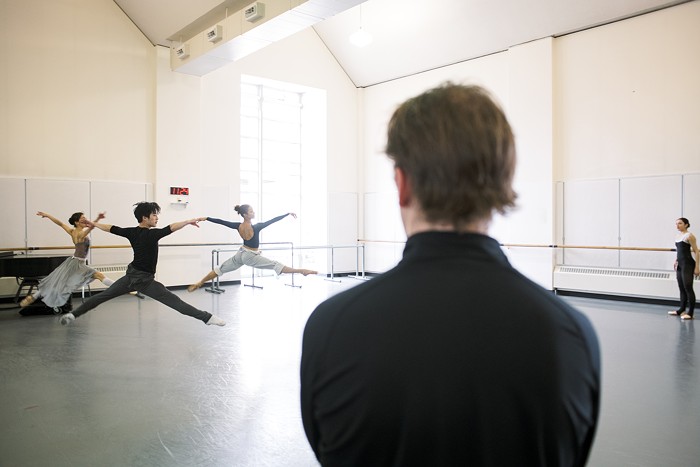
Sounds like an old-fashioned story ballet, right? Not exactly. Lang destabilizes identity by casting all the dancers as both Mary and Jesus, having them swap roles throughout the show. When Mother becomes Son and vice versa, the griever becomes the grieved, literally embodying the empathetic response while also subtly underlining the cyclical nature of loss. Clever costume design and a sleek, modern set foregrounds the contemporary movement, as dancers transform into fire or burst into the pure joy of salvation.
But it’s that notion of radical empathy that drew her to the material in the first place, partly because she sees herself in it. After more than two decades of creating dance all over the globe, she’s developed a “hyper-empathetic” approach to working with dancers. “I observe them, I see their highs and their lows, and when they move, I feel their movements—I can see it and I can feel it,” she said.
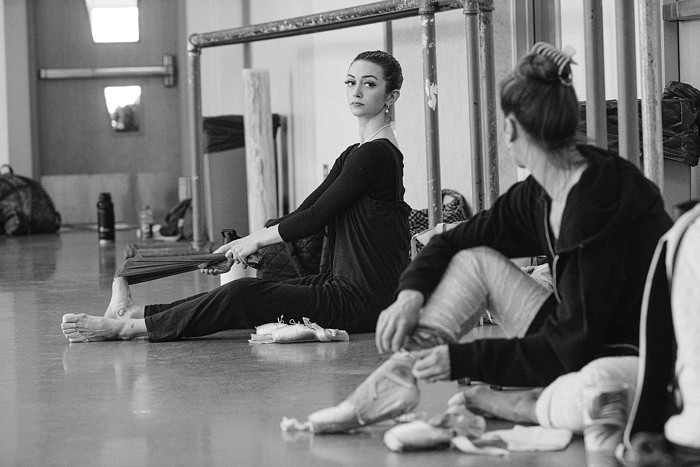
That empathy came through in a recent rehearsal. “Fire! Fire! Fire!” she said to a group of young corps de ballet dancers sprinting across the studio floor and elegantly flailing their arms in imitation of flames. After several attempts, the steps seemed to challenge the dancers at the expense of projecting the idea of holy fire. A few gentle adjustments later, and the sequence worked out smoothly but looked just as impressive.
Of the three choreographers on the program, Penny Saunders actually has to rein in her piece for Boundless. Wonderland, her riff on Alice’s trippy world, debuted at PNB in 2020. The video performance featured dancers in circus-chic costumes haunting McCaw Hall’s peak-COVID carcass. They escape the invisible walls of the stage, dancing in the opera boxes and in the orchestra pit for no one but themselves.
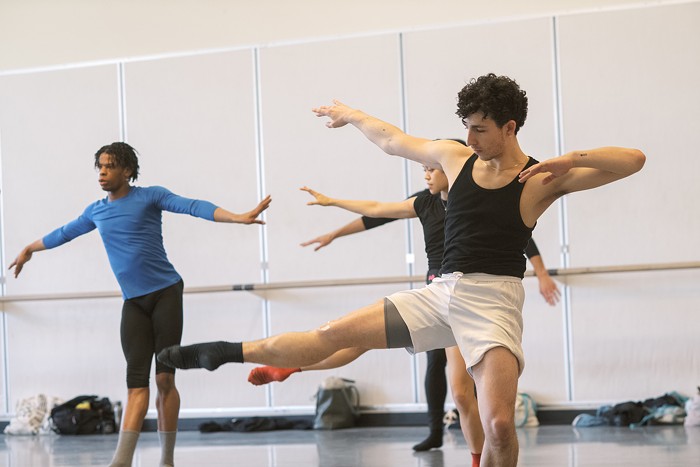
Two years and a couple of mRNA vaccines later, and now Saunders must find a way to retain that sense of dancers-dancing-everywhere-all-at-once, but she has to keep them more or less in the auditorium. Very early in the rehearsal schedule, there was some loose talk of stashing dancers in the box seats, but decisions were still being made.
No matter which tack she chooses, real-life Wonderland is bound to radiate the same melancholic magic as its digital companion did a few years back. And if the dancers have as much fun with it as they did in the studio while working to translate the movements from the screen to the stage, then it might just steal the whole show.
See Boundless March 17 through 26 at McCaw Hall.
